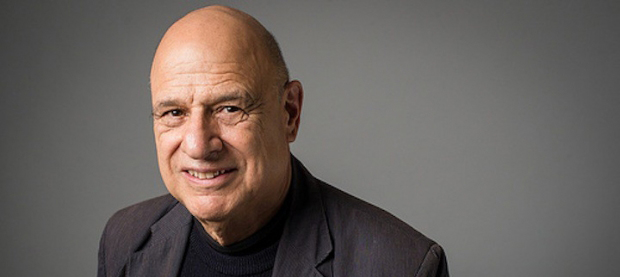It was in Seeger Chapel on the campus of Milligan College where I first heard the preaching of Tony Campolo. Like many of my classmates, I was taken by the way his style drew me into a new realization of the gospel’s impact on the world.
I did that week what most college sophomores were not so keen to do, as a rule, when a lecture series came to town: I made sure to go to every lecture he was scheduled to give. At the end of that week, not only had I been inspired by a bold and reasonable faith that exulted in God’s radical love, but I also was impressed with an element of preaching that had to be embraced.
Campolo was a consummate storyteller. Up to that point in my journey, I had not witnessed anyone so effectively engage a congregation as he did. He used stories to make Scripture texts come alive in preaching. His style was down to earth, genuine, and as he told stories he looked us in the face with every word. So, from college to seminary and beyond, I bought his books and gathered wherever I heard he was preaching nearby to observe that storytelling-ness he lived so naturally.
Of course, Campolo’s Pennsylvania Italian upbringing by a storytelling mother lent itself to narrative prowess, but it also was obvious he had learned well at the feet of Jesus. Yes, he took discipleship seriously, but he also made sure, like Jesus, not to leave a theological concept, or a teaching from Scripture, devoid of a picture in story form to drive it home.
He was fond of quoting Soren Kierkegaard in his sermons. Kierkegaard once wrote, “What one’s life proclaims is a hundred thousand times more powerfully effective than what one’s mouth proclaims.” Campolo’s preaching encouraged the church to live a “proclaiming life” in real time.
“Campolo’s preaching encouraged the church to live a ‘proclaiming life’ in real time.”
Through the years, like many ministerial colleagues, I found my way to the National Storytelling Festival in Jonesborough, Tenn., to learn more about the art form Campolo new so well. There the power of story is visually conveyed at the sight of five big-top circus-style tents erected all around Tennessee’s oldest town as storytelling venues.
In each tent, as many rows of folding chairs as possible are arranged for festival goers. All those chairs are focused on one thing: a raised platform with a microphone on a stand. No projectors or screens or television monitors or any other mode of complementary communication. At the appointed time, it is just a storyteller stepping to that lone microphone to tell a story — and the crowd goes wild!
Stories take us places.
Donald Davis, a professional teller and minister, visited with school counselors and ministers in our town a few years ago. He taught us good stories have four basic elements: people, place, problem and progress in solving the problem. This is why we listen so carefully to stories. The more we listen, the more we see ourselves or our people, places and problems in them and we realize we are not alone.
I grew up sitting on my uncle’s porch reared back in a cane-bottomed chair listening to him tell one story after another about life in North Georgia. He and my aunt did not have a television or a bathroom in the house, but those stories called us back every summer. As a young child, I loved every minute of those stories. And, as an adult, I loved every opportunity to hear Tony Campolo tell his.
“We can camp out a while right in the middle of them and chew on eternal things that suddenly come close to the earth as the tale weaves on.”
He was the first preacher I encountered who used stories so well and so naturally that listeners could listen for an hour and swear it had only been 10 minutes. Stories that sweep us up have that impact on us: We can camp out a while right in the middle of them and chew on eternal things that suddenly come close to the earth as the tale weaves on.
Campolo graciously came to speak to our church several years ago for a series of services. The morning after one of the services, I was setting up the sanctuary stage for the next service and noticed he had left his sermon notes on the pulpit. It always amazed me, when witnessing to him speak, how he could move through a sermon so powerfully and intentionally without any notes. It tickled me, though, every now and then, you would see him reach into the side pocket of his jacket and glance at what looked like a crib sheet and keep going without missing a beat.
That day on the pulpit I saw his notes from the night before. He knew the theme for our services, and he addressed it masterfully, but those notes were written simply on a small piece of paper, a list numbered one to five, with a word or two at each number to remind him of the next story.
The thrust of the Scripture was embedded in his heart, and the story list was his way of making the message come alive.
I have held on to that small piece of paper he left behind on the pulpit as a reminder of how important story is in preaching. I have kept it as a memento of one of the finest storytellers of a generation of church folk.
And now, having heard of Campolo’s passing, I praise God for the story of Jesus communicated to scores of people through his life and ministry as he helped us to tell a better story to a world in need of some good news.
Tony Tench works with the Lakelands Region YMCA of South Carolina and is former pastor of First Baptist Church of Shelby, N.C., and interim pastor of Poplar Springs Baptist Church in Shelby. He and his wife, Janet, enjoy living near their daughter’s family and serving with them at NewSpring Church in Greenwood, S.C.
Related articles:
Tony Campolo taught me about a faith outside myself | Opinion by Cara Meredith
Sunday came for Tony Campolo | Analysis by Steve Rabey


